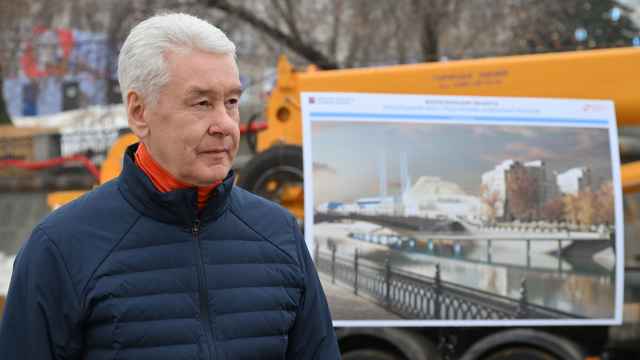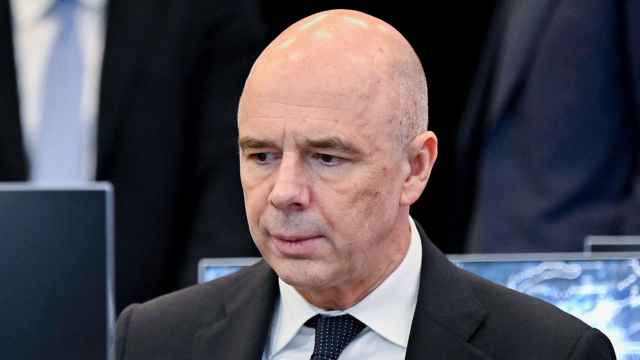The Cabinet has formed a new council to promote the Russian language abroad, allocating a 1.5 billion ruble ($46 million) budget to fund the opening of linguistic centers in dozens of countries around the world.
Prime Minister Dmitry Medvedev signed an order on Tuesday establishing the council to "help fulfill the government's policy aimed at popularizing the Russian language, supporting and developing it," the Cabinet said on its website.
Among the council's tasks will be the opening of Pushkin Institute linguistic centers in about 50 countries, including former Soviet republics, Europe, the U.S., China, Japan, Syria, Iraq and several other Middle Eastern nations, news reports said.
The new council will be headed by social policy chief Olga Golodets, her spokesman Alexei Levchenko said.
The spokesman said some of the Russian language centers overseas may be free, while some may charge tuition, and one of the first centers to open under the project will be based in Paris, Izvestia reported.
Levchenko added that popularizing the Russian language is "one of the instruments of promoting the country through soft power, as opposed to rockets and weapons," Kommersant said.
Russian language councils existed in the country in the 1990s to the mid-2000s, mostly to help Russians speak and write their native language properly.
The last Cabinet council, established by then-Prime Minister Viktor Chernomyrdin in 1997, called for "popularizing knowledge about the Russian language through the media."
One of its major accomplishments was the creation of the literacy website Gramota.ru in 2000, to explain both the basics and many of the trickiest issues of the language's arcane spelling and punctuation rules.
A member of the Kremlin's international relations council, Vladimir Zorin, said that the language council was part of President Vladimir Putin's national development strategy through 2025.
"If people know more about the Russian language, culture, our mentality, this by itself would help improve the image of our country abroad," Zorin told newspaper Vzglyad.
Vyacheslav Nikonov, head of the Russian World foundation and the State Duma's educational committee, said that the number of Russian speakers around the world has shrunk by 50 million people in recent years, and though the creation of a council was a good idea, its budget of 1.5 billion rubles was insufficient.
"That's less than the budget of Rossotrudnichestvo" collaboration agency, Nikonov said, according to Izvestia. "And this certainly doesn't match the scope of the problems that need to be solved."
A Message from The Moscow Times:
Dear readers,
We are facing unprecedented challenges. Russia's Prosecutor General's Office has designated The Moscow Times as an "undesirable" organization, criminalizing our work and putting our staff at risk of prosecution. This follows our earlier unjust labeling as a "foreign agent."
These actions are direct attempts to silence independent journalism in Russia. The authorities claim our work "discredits the decisions of the Russian leadership." We see things differently: we strive to provide accurate, unbiased reporting on Russia.
We, the journalists of The Moscow Times, refuse to be silenced. But to continue our work, we need your help.
Your support, no matter how small, makes a world of difference. If you can, please support us monthly starting from just $2. It's quick to set up, and every contribution makes a significant impact.
By supporting The Moscow Times, you're defending open, independent journalism in the face of repression. Thank you for standing with us.
Remind me later.





